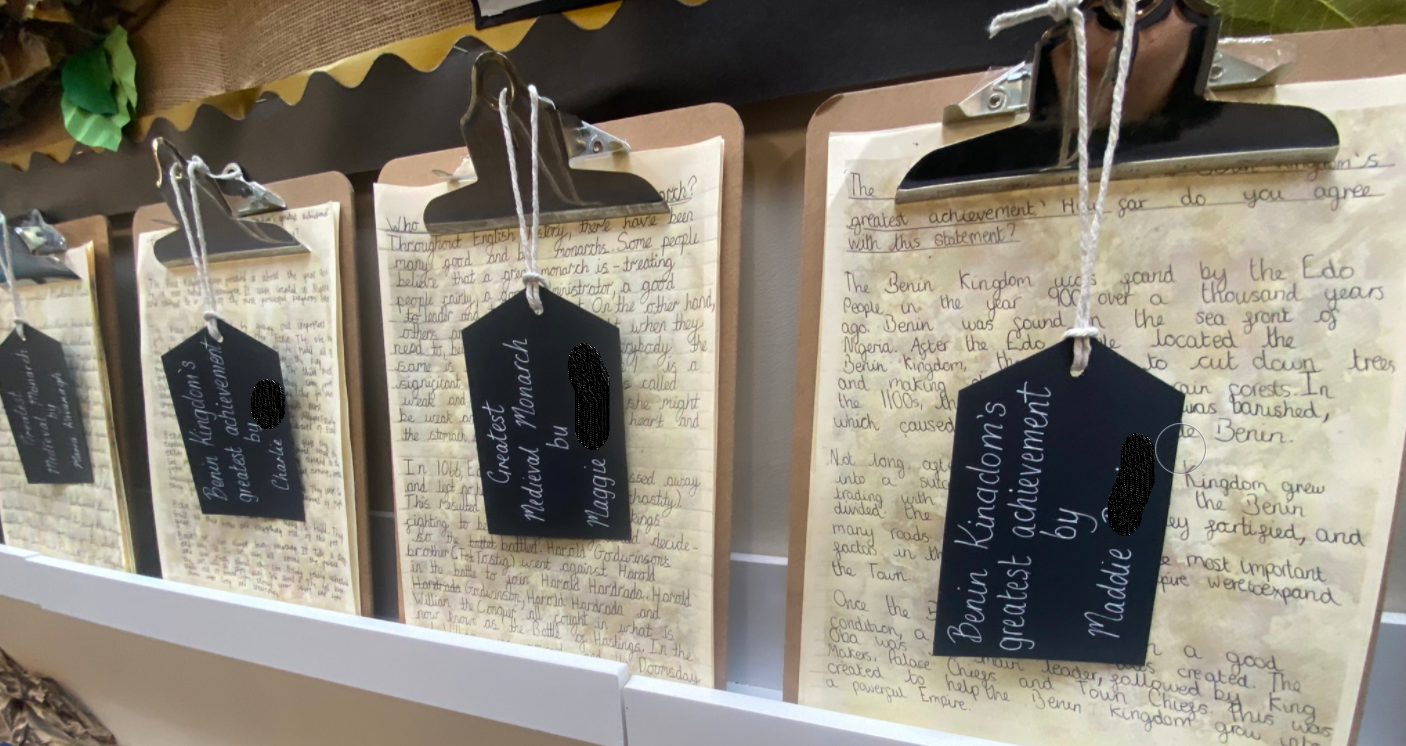- School Info
- Parents
- Admissions
- Attendance
- Frequently Asked Questions
- Newsletters
- Letters Home
- Lunch Menu
- Online Advice
- Parent View
- Remote Learning
- Safeguarding
- School Uniform
- SEND
- The School Day
- Coronavirus Updates and Advice
- Term Dates and School Calendar
- Breakfast and After School Club Provision- Butterflies
- Parent Advice
- Curriculum
- Early Years
- Pupils
- Wellbeing
- Calendar
- News
- Contact
- Statutory Policies
- Job Vacancies
- Train to teach
- Home
- Curriculum
- History
History
The person responsible for developing history in our school is Mrs R. Pender
Our history learning begins in the Early Years where children are given planned opportunities to develop their understanding of the world: past and present. Children learn about the lives of people around them and their roles in society. They explore similarities and differences between things in the past and things now, drawing on their experiences and what has been read to them and understand the past through settings, characters and events encountered in books read in class and story telling. We also aim for our EYFS children to develop the basic understanding of chronology, through everyday ideas such as days of the week, months of the year and visual timetables as well as developing their historical enquiry, by strategically placing historical objects into provision areas linked to the curriculum to spark curiosity and inform high quality interactions.
In KS1, we have mapped a curriculum that will enable pupils to further develop an awareness of the past, using common words and phrases relating to the passing time. They will begin to develop an understanding of where and when the people and events they study fit within a chronological framework and identify similarities and differences between ways of life in different periods of time. KS1 children study The Great Fire of London as a significant event beyond living memory and Travel and Transport which allows them to study a time of change within living memory. They also study the life of Pocahontas, as a significant individual from the past, who has contributed to national and international achievements.
The history curriculum at Key Stage 2 seeks to give pupils a solid foundation and broad overview in some of the most important periods, events and themes in British and world history. It is comprehensive but necessarily selective. The curriculum gives pupils a strong grounding in British history, taught chronologically from the first settlements, through Roman Britain, the Anglo-Saxons, the Vikings, the medieval period and up to the Industrial Revolution and touching on Britain during the two World Wars. While studying these periods the units explore themes of change and continuity, perspective and power. We have carefully selected the four units exploring world history to provide global coverage and introduce a number of themes. The unit on Ancient Greece introduces key ideas around power and its legitimacy, the Shang Dynasty gives insight into the progress and achievements in China at a time when there was much less occurring in Europe. We chose to include units on the Benin Kingdom to challenge the narrative often prevalent in the teaching of African history – celebrating a highly successful civilisation while introducing the slave trade. Finally the unit on Civil Rights provides an insight into the way black people have been treated in the USA, through the Civil Rights movement and Dr King, right the way to the Black Lives Matter. All history lessons from KS1 to KS2 are based around a specific historical enquiry question.
Due to our school numbers and having some mixed-age classes, in year 5 and 6 we run on a two year cycle to enable coverage and progression.
For more about Active Learn follow the link below:
PROGRESSION OF KNOWLEDGE AND SKILL
PROGRESSION OF VOCABULARY IN HISTORY
History Documents
EXAMPLE UNIT - Y6 INDUSTRIAL REVOLUTION
Click here to explore some of our fantastic history learning throughout school.




